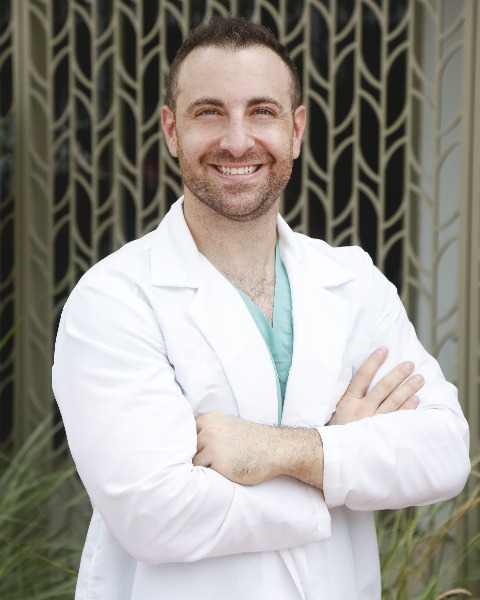Back
Poster, Podium & Video Sessions
Moderated Poster
MP35: Sexual Function/Dysfunction: Medical, Hormonal & Non-surgical Therapy I
MP35-03: The broad reach of social media as a health resource for testosterone information
Saturday, May 14, 2022
4:30 PM – 5:45 PM
Location: Room 222
Justin Dubin*, Daniel Greenberg, Chicago, IL, Richard Fantus, Evanston, IL, Minh Pham, Matthew Hudnall, Nelson Bennett, Robert Brannigan, Joshua Halpern, Chicago, IL

Justin Dubin, MD
MD
Northwestern University Feinberg School of Medicine
Poster Presenter(s)
Introduction: TikTok (TT) and Instagram (IG) are popular social media (SoMe) platforms with over 1 billion users each, 50% of whom are between the ages of 16-45. These platforms have become a major resource for health information. We sought to determine if testosterone is a topic of interest among SoMe users and to review the quality of information on these platforms.
Methods: We searched the following hashtag terms on both TT and IG: “testosterone,” “testosteronebooster,” “lowtestosterone,” ”boosttestosterone,” “testosteronereplacement,” “increasetestosterone,” “testosteronereplacementtherapy,” “testosteroneinjection,” and “testosteronetherapy.” We recorded total TT impressions (views) and IG impressions (posts) for each term. For the two most popular terms, we reviewed the top 20 impressions and characterized the type of post, accuracy of information, and the content creator.
Results: Over 700 million TT and 900,000 IG impressions were associated with testosterone-related hashtag terms. The top 3 most viewed terms for TT were testosterone (676 million views), testosteronebooster (18.9 million views) and lowtestosterone (3.6 million). The top 3 most posted hashtag terms for IG were testosterone (833,000 posts), testosteronebooster (53,000 posts), and lowtestosterone (27,000 posts). Among the top 40 impressions on TT, only 1 post (2.5%) was created by a physician and none had a verified account. Among the top 40 impressions on IG, only 2 posts (5.0%) were created by a doctor and 1 post (2.5%) had a verified account. A large proportion of TT and IG posts were educational (55.0% and 47.5%, respectively). On TT, a significant proportion of non-educational posts were personal and focused on gender affirming hormone therapy (40.0%). On IG, a significant proportion of non-educational posts were promotional (30.0%). Among educational posts, 29.2% of TT compared to 52.6% of IG posts provided accurate information (p = 0.12). Among the 3 physician posts, 1 provided inaccurate information, 1 provided accurate information, and 1 posted promotional content.
Conclusions: Information regarding testosterone is popular content on both TT and IG. Unfortunately, the majority of the educational content is inaccurate and created by non-physicians, providing an opportunity for improved dissemination of accurate information on these platforms.
Source of Funding: N/A

Methods: We searched the following hashtag terms on both TT and IG: “testosterone,” “testosteronebooster,” “lowtestosterone,” ”boosttestosterone,” “testosteronereplacement,” “increasetestosterone,” “testosteronereplacementtherapy,” “testosteroneinjection,” and “testosteronetherapy.” We recorded total TT impressions (views) and IG impressions (posts) for each term. For the two most popular terms, we reviewed the top 20 impressions and characterized the type of post, accuracy of information, and the content creator.
Results: Over 700 million TT and 900,000 IG impressions were associated with testosterone-related hashtag terms. The top 3 most viewed terms for TT were testosterone (676 million views), testosteronebooster (18.9 million views) and lowtestosterone (3.6 million). The top 3 most posted hashtag terms for IG were testosterone (833,000 posts), testosteronebooster (53,000 posts), and lowtestosterone (27,000 posts). Among the top 40 impressions on TT, only 1 post (2.5%) was created by a physician and none had a verified account. Among the top 40 impressions on IG, only 2 posts (5.0%) were created by a doctor and 1 post (2.5%) had a verified account. A large proportion of TT and IG posts were educational (55.0% and 47.5%, respectively). On TT, a significant proportion of non-educational posts were personal and focused on gender affirming hormone therapy (40.0%). On IG, a significant proportion of non-educational posts were promotional (30.0%). Among educational posts, 29.2% of TT compared to 52.6% of IG posts provided accurate information (p = 0.12). Among the 3 physician posts, 1 provided inaccurate information, 1 provided accurate information, and 1 posted promotional content.
Conclusions: Information regarding testosterone is popular content on both TT and IG. Unfortunately, the majority of the educational content is inaccurate and created by non-physicians, providing an opportunity for improved dissemination of accurate information on these platforms.
Source of Funding: N/A


.jpg)
.jpg)